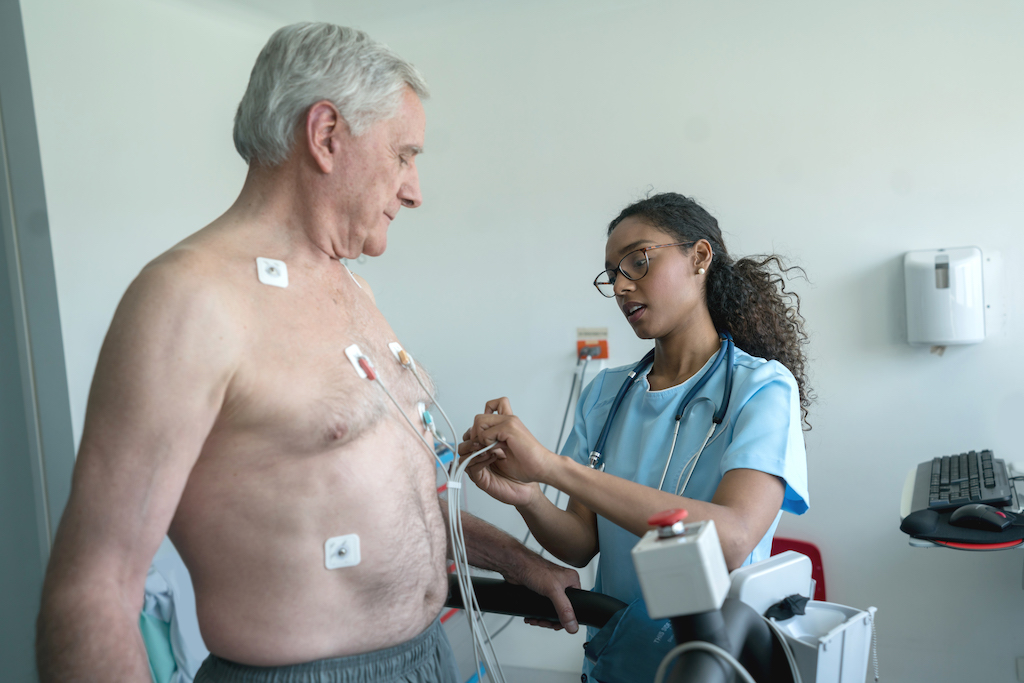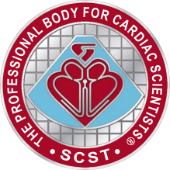Cardiac Scientist
A Cardiac Scientist (CS), after a period of training, is responsible for the recording and analysis of different physiological data required to assist in the diagnosis and treatment of known or suspected cardiac disease.
The CS is the friendly professional face in this highly scientific environment at the interface between patient and the technological equipment. The CS normally works in a Cardiology Department within a hospital. The variety of procedures carried out vary from hospital to hospital.
Some smaller hospitals may also include procedures from other disciplines e.g. respiratory function tests. CSs often work with patients who are often anxious or distressed. A calm, confident but sympathetic approach is required to achieve an appropriate outcome for the patient.

How To Become A Cardiac Scientist
You can apply for Cardiac Science Degrees as part of the Practitioner Training Programme via the Universities and Colleges Admissions Service (UCAS). When searching on the UCAS website, we recommend that you search using ‘healthcare science’. The Practitioner Training Programme (PTP) is a three-year undergraduate training scheme that includes work-based and academic learning.
You can also apply for the Scientist Training Program (STP) via the National School of Healthcare Science web-site.
The STP is a 3 year post graduate training scheme that again includes both work based and academic learning.
Whilst on the program you will complete a MSc (Hons) in Clinical Science. For more information on this program please visit https://nshcs.hee.nhs.uk/programmes/stp/
The programmes involves broad scientific training in the first two years with an increased focus on a chosen specialism during year three.
Whilst on the programme you will complete a BSc (Hons) in Healthcare Science. For more information visit https://nshcs.hee.nhs.uk/programmes/ptp/applying-to-the-programme/ and https://nshcs.hee.nhs.uk/services/accreditation/ptp-academic-programmes/

Career Prospects
For pay and conditions of service CPs and Cardiographers are generally paid on the NHS pay banding system. Qualified staff should commence on Band 5.
Job Grades
Cardiac Physiologists have five recognised grades:
- Trainee Cardiac Physiologist
- Cardiac Physiologist
- Specialist Cardiac Physiologist
- Highly Specialist Cardiac Physiologist
- Consultant Cardiac Physiologist
Assistant/ Associate Practitioners have two recognised grades:
- Assistant/ Associate Practitioners
- Senior Assistant/ Associate Practitioners
Assistant/ Associate Practitioners have a Society examination available – the Certificate in Electrocardiography. Click here for the syllabus.
The scientific and technical grading structure varies from hospital to hospital, normally depending on the complexity of work undertaken. Grades Senior Cardiac Physiologist and above are not automatically awarded but are applied for as posts become vacant. It may be necessary to move from the local area to achieve promotion. Private hospitals (non NHS) have their own pay systems but often mirror the NHS pay.
